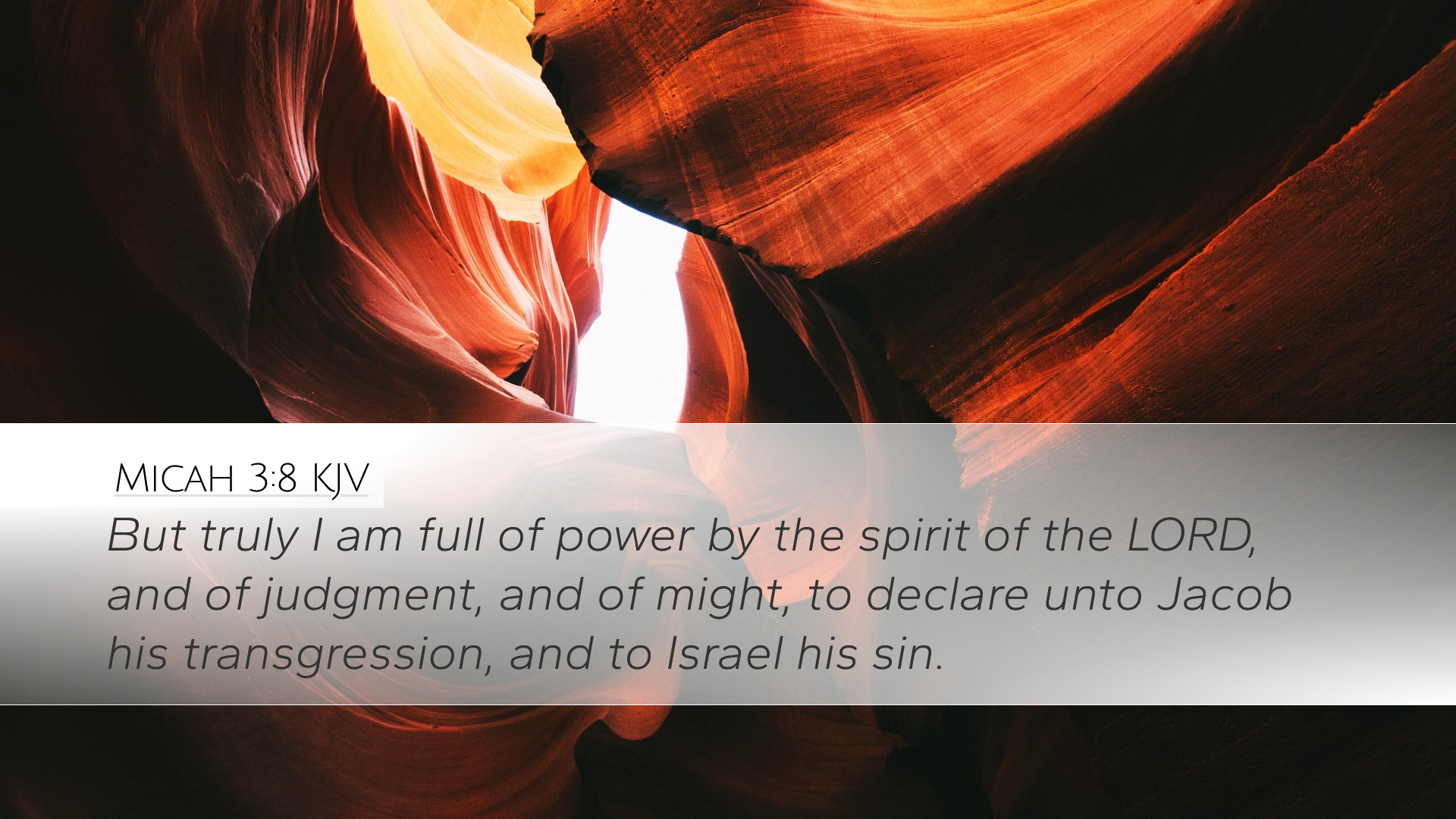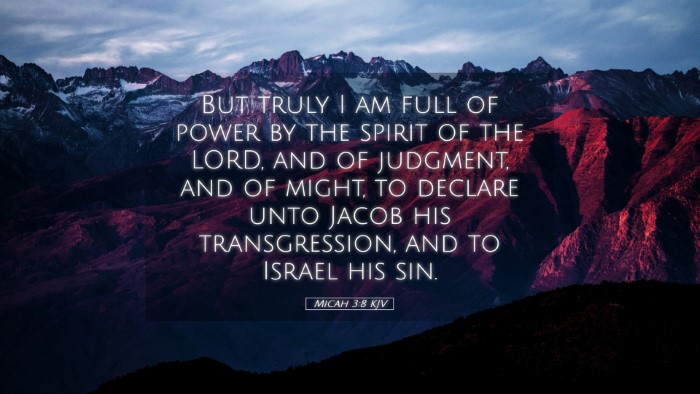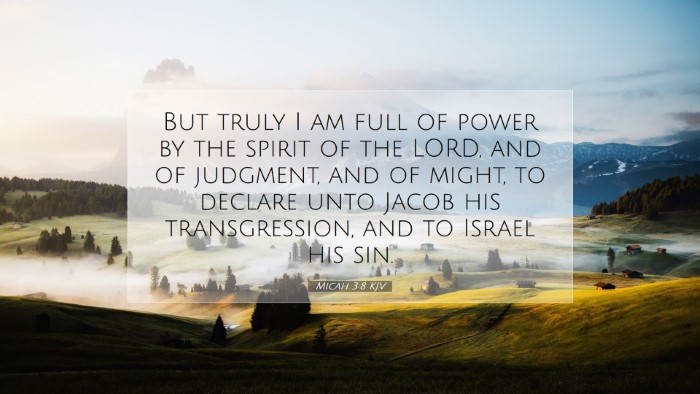Old Testament
Genesis Exodus Leviticus Numbers Deuteronomy Joshua Judges Ruth 1 Samuel 2 Samuel 1 Kings 2 Kings 1 Chronicles 2 Chronicles Ezra Nehemiah Esther Job Psalms Proverbs Ecclesiastes Song of Solomon Isaiah Jeremiah Lamentations Ezekiel Daniel Hosea Joel Amos Obadiah Jonah Micah Nahum Habakkuk Zephaniah Haggai Zechariah MalachiMicah 3:8
Micah 3:8 KJV
But truly I am full of power by the spirit of the LORD, and of judgment, and of might, to declare unto Jacob his transgression, and to Israel his sin.
Micah 3:8 Bible Commentary
Commentary on Micah 3:8
Verse Text: "But as for me, I am filled with power, with the Spirit of the LORD, and with justice and might, to declare to Jacob his transgression and to Israel his sin."
Introduction
Micah 3:8 stands as a pivotal declaration within the prophetic book of Micah, addressing both the prophet's empowerment by God and his task of confronting the injustices prevalent in Judah. In light of insights drawn from public domain commentaries, this analysis explores themes of divine empowerment, prophetic responsibility, and social justice.
Contextual Overview
Micah, a contemporary of Isaiah, prophesied during a tumultuous time in Judah characterized by moral decay, social injustice, and a neglect of true worship. His ministry unfolded amid the Assyrian threat, which necessitated a clarion call for repentance and reform.
Analysis of Key Themes
- Divine Empowerment
As Micah asserts, he is "filled with power," which denotes an infusion of divine strength that accompanies his prophetic calling. Matthew Henry emphasizes that the empowerment of the Spirit is essential for the prophet's mission. This reflects the biblical truth that God equips His messengers for the work He appoints them to do.
- The Role of the Spirit of the LORD
Micah's reference to the "Spirit of the LORD" indicates a direct influence of the Holy Spirit in his ministry. Albert Barnes points out that this Spirit empowers Micah not only with authority but also cultivates moral clarity and discernment, enabling him to declare the sins of Israel. This aspect underscores the indispensable role of the Holy Spirit in prophetic ministry.
- Justice and Might
Justice and might become defining characteristics of Micah's prophetic mission. Adam Clarke articulates that these attributes reflect God's holiness and moral order. As Micah prepares to declare the people's sins, he embodies the intersection of compassion and accountability—delivering a message that confronts sin while pointing toward divine justice.
- The Call to Address Social Justice
Prophetic ministry inherently involves a commitment to justice. Micah's task of "declaring ... transgression" highlights the necessity of identifying and confronting injustices within the community. This theme resonates with the prophetic tradition, where the call for justice is both an assertion of God’s character and a demand for societal righteousness.
- Accountability of Leadership
Micah’s role serves as a critique of the leaders in Israel who fail to uphold justice and morality. Matthew Henry warns against spiritual leaders who misuse their authority, drawing attention to how Micah represents the voice of the faithful remnant, calling leaders to account for their actions. This highlights the prophetic assertion that God observes and will judge unjust practices in leadership.
Application for Today
For contemporary readers, especially pastors and scholars, Micah 3:8 serves as an urgent reminder of the need for prophetic voices in our own contexts. The courage to speak truth to power, champion justice, and follow the lead of the Holy Spirit is essential for faithful ministry today.
This passage invites believers to reflect upon their own lives and communities asking: How can we embody both justice and mercy? How are we listening for the Spirit's guidance in our declarations against injustice? Micah stands as a model for those committed to living out the implications of faith in a world rife with inequality and strife.
Conclusion
In summary, Micah 3:8 eloquently encapsulates the essence of prophetic ministry, characterized by divine empowerment, a commitment to justice, and a call to accountability. As we engage with this text, may the Spirit of the LORD fill us with boldness and clarity, encouraging us to confront sin and advocate for justice in our communities.


